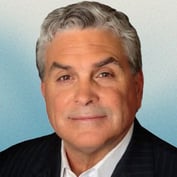Joshua Brown is one angry former broker.
The 35-year-old financial advisor, whose Reformed Broker blog has brought him wide acclaim in recent years, has just written a book meant to uncover the perfidy of Wall Street. Backstage Wall Street is part plea, part mea culpa, part screed. Brown unmasks the financial industry for all to see, revealing the less-than-honest sales tactics of boiler-room brokers and dressing down investment banks for running away with fees and riches while Mom and Pop retail investors are left holding the bag.
Brown makes some startling claims: wirehouse brokerage firms will be gone in 10 years, as will the “suitability” standard governing broker-dealers. Mutual funds? They’ll be gone too, replaced by their fast-rising cousins, ETFs. Brown takes his readers on the bumpy ride of Wall Street, from 2000 (when he started), through the credit crisis of 2007-2008, to the present day, when you can find him as a reinvented registered investment advisor, happily banking management fees instead of commissions.
But with the anger, there is also care. Brown, currently a vice president of investments at New York-based Fusion Analytics, truly wants to create a better financial industry, one where advisors can continue to make a living while always acting in their client’s best interest.
What motivated you to write the book?
I’d say the primary reason is I had all this stuff in my head and weighing me down for a long time and it was just something that had to come up in some format. The second reason is, I think there’s a story here that is more than just writing a series of blog posts, so I wanted to do something with this stuff. Blog posts are very disposable. People read them on Monday and then on Tuesday there’s a whole new crop, so I felt that what I was trying to say with the book should have a little more of a shelf life.
In the beginning of the book, you write that you hope to reveal the “reality behind all the false glamour, contrived accuracy, and manufactured confidence” on Wall Street. Why?
People have said about my site, that the goal of [it] is how to make Wall Street better. So I think that has something to do with it. I hope that I’m part of a new wave of investment professionals that work to be truthful and only do things with the client’s best interest at heart. So I hope that the book is part of that, an extension of that. Without sounding too high on the horse, that was something that just kind of evolved.
On this theme, in the beginning of the book, you describe your disappointment, even disgust, with the industry. At one point, you write “I’ll starve on the street before I’ll ever be a retail stockbroker again.” What’s so bad about being a retail stockbroker?
Everything. At its core, it’s one giant conflict. The way we get paid, the way we’re incentivized to do one thing over another, the fact that there are pay periods. In other words, there are considerations to what makes one person versus another person successful that are in diametric opposition to what is good for the client. I guarantee you if regulators want to do one very simple thing with a retail brokerage firm, the only thing they have to do is go into a firm and ask to see the commission books. Ask to see any Wednesday of the month versus the last day of the month. If they did that, I guarantee 12 months out of 12, for any given year, they would find an increased number of transactions and obviously an increased level of gross on that last day of the pay period versus any other Wednesday of the month.
And what that tells you is that there are people making decisions that have more to do with brokers’ compensation than what is best for the client. There are certain things that are endemic to being a retail broker that are in opposition to what is best for the client. So I’m not ever going to put myself in that position again where I have to rationalize and say things like “look, I really care about the client, but I’m $500 away from hitting a certain number and if I don’t hit it I’m going to have a lower payout, so I better do this trade.” I’m not going to do that ever again. I would prefer to sell oranges on the highway.
The readers of this magazine are retail stockbrokers, so I’m wondering, do you think they are all embroiled in conflict?
To greater and lesser extents, depending on what the firm does and what their niche [is]. I think there are very few firms left that are all the time full-service brokerage firms and nothing else. That’s a rarity. I think what is more likely is that anywhere where your magazine gets delivered, somebody opens it up and reads it, that person works at a firm where some of the business they do is full-service brokerage and some of it is advisory.
What about those who are exclusively brokers?
They’re not going to like what I have to say, but I think they’re going to know that I’m telling the truth.
You talk a bit about the different standards applied to broker-dealers and RIAs and write that clients have no idea that those two kinds of financial advisors are governed by very different regulatory standards. Do you think this is something that Wall Street wants to obfuscate?
I think they benefit from the confusion, but I don’t think there’s a conspiracy. This is one of those things where it’s lying by omission. There was a survey in 2010 where 93 percent of all investors didn’t understand that their stockbroker didn’t have a fiduciary duty to them. So what that means is that more than 9 out of 10 Americans think that any financial professional they work with has a fiduciary responsibility to them, when in reality, as a broker, the broker only has a suitability standard on a transaction on transaction basis.
You write a lot about the rough-edge stockbroker culture and the boiler room atmosphere and basically suggest that most brokers care more about the sale than the customer and basically don’t know very much about what they’re selling.
I’m speaking about a very specific kind of broker and that broker is dying, a relic of the ’90s, that broker is dwindling down. When I’m talking about blue collar Wall Street brokers I’m basically talking about the guy who has built [his business] through advanced cold-calling skills. Basically, they lie for a living. Their pitch is that they somehow have the ability to outperform the market consistently, which of course is a lie, but they say it as though it’s fact.
So you’re not talking about the big wirehouse broker?







 February 24, 2012 at 07:00 PM
February 24, 2012 at 07:00 PM












 Copyright © 2024 ALM Global, LLC. All Rights Reserved.
Copyright © 2024 ALM Global, LLC. All Rights Reserved.